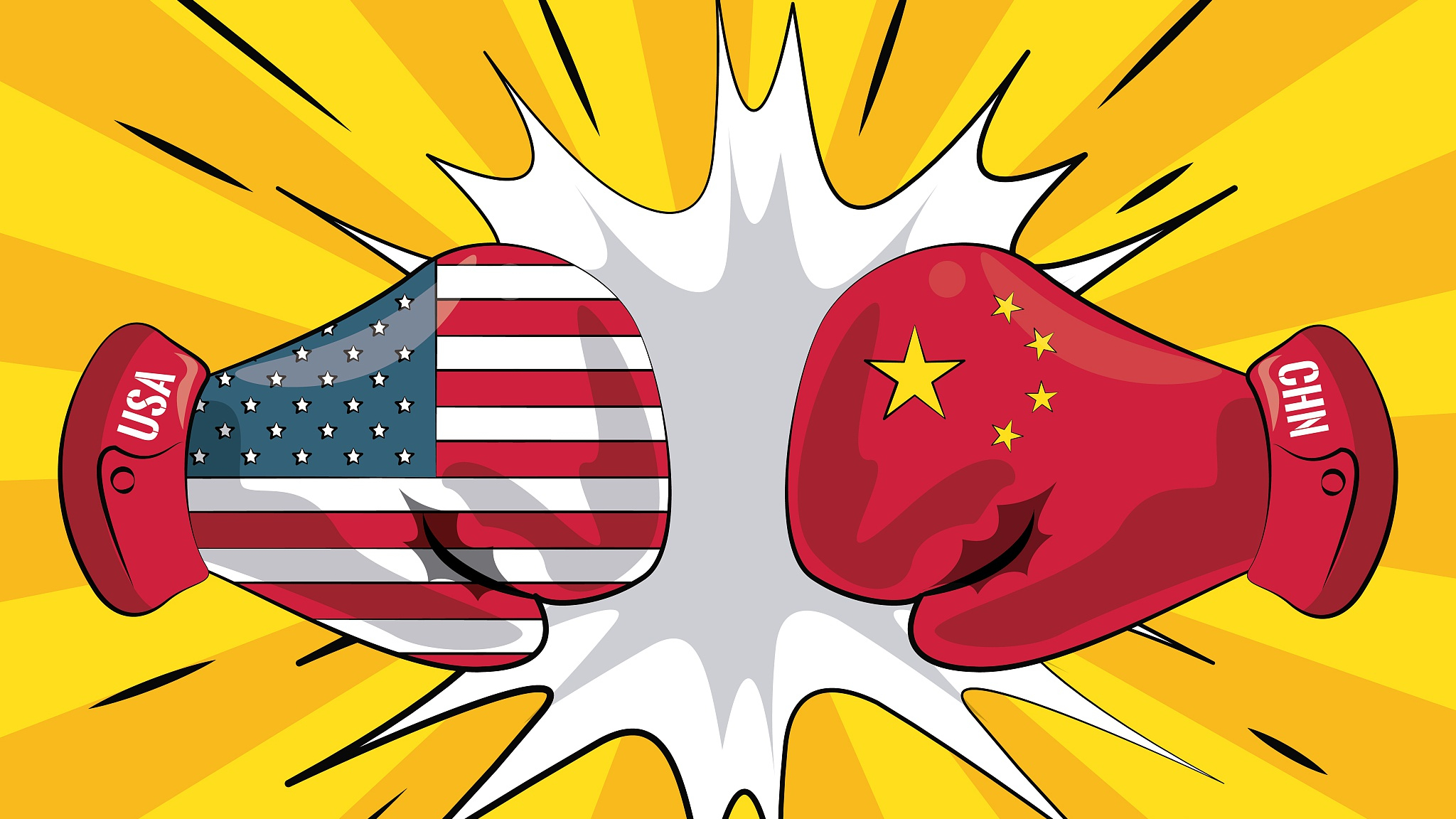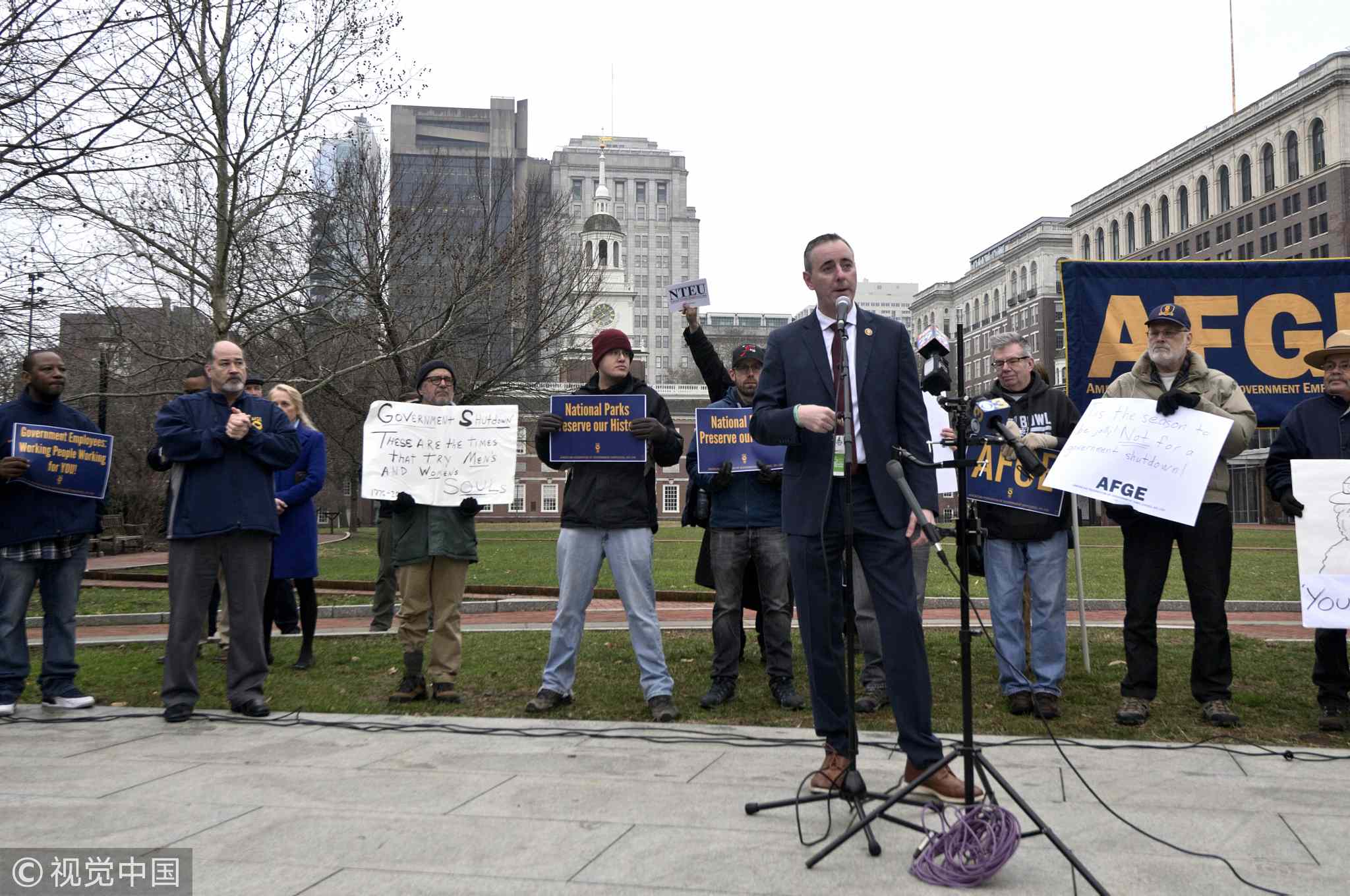
Opinions
11:13, 09-Jan-2019
Opinion: Trump's hype of China's 'weak' economy an attempt to win more leverage
Updated
10:57, 12-Jan-2019
CGTN's Liu Jianxi

Editor's Note: Liu Jianxi is an opinion editor with CGTN Digital. The article reflects the author's opinions, and not necessarily the views of CGTN.
As 90-day clock ticks, deputy-ministerial-level negotiators from the U.S. are meeting their Chinese counterparts in Beijing for the first face-to-face talks. It has been almost one year since the world's largest two economies are locked in the trade fight, and apparently, both sides are yearning for a fundamental solution.
The heads of state have had two phone conversations since November, both at the invitation of the U.S. side. Such frequent interactions are strong evidence of Washington's sincerity in talks. In the meantime, as the fresh round of trade talks kicked off on Monday, China's top trade official Liu He made a surprise appearance at the table, showing China's goodwill and commitment to clinching a deal.
In such a context, Trump's Monday remarks have triggered widespread speculations. "I think China wants to get it [trade war] resolved. Their economy's not doing well… I think that gives them a great incentive to negotiate," Trump reportedly said, attributing trade talks to China's "weak economy."

A snapshot from Reuters report on Trump's China remarks
A snapshot from Reuters report on Trump's China remarks
Trade frictions will only bring multi-lose results, exerting negative effects on both China and the United States. As for whether the Chinese economy is good or not, Chinese foreign ministry spokesperson Lu Kang said at Monday's press conference that “China's development has enough resilience and huge potential.”
U.S. economy, on the contrary, is painfully digesting the bitter pills of the battle that the country's president unilaterally launched. The U.S. stock market is on the rock, with the Dow Jones Industrial Average suffering drastic drops. Observers believe that the first big-sell in October prompted Trump to set up the dinner with his Chinese counterpart in Argentina that led to the 90-day truce.
Trade saber-rattling has raised the anxiety level of foreign investors and is discouraging the flow of overseas money into the United States. Foreign direct investment in the U.S. businesses is falling again in 2018 after the 2017 plunge, shrinking 23 percent worldwide, according to the Organization for International Investment.
The trade war was initially launched to slap tariffs on Chinese imports, but ironically U.S. trade deficit hits a 10-year high last October. The country's politically sensitive goods trade deficit with China surged to a record 43.1 billion U.S. dollars that month, according to media reports. “We expect the U.S. to slow down to less than two percent” by the end of 2019, Goldman Sachs strategist Christian Mueller-Glissmann was quoted by CNBC as saying.

U.S. Republican Brian Fitzpatrick speaks during a non-partisan rally protesting the Federal Government shutdown at Independence Mall, in Philadelphia, January 8, 2019. /VCG Photo
U.S. Republican Brian Fitzpatrick speaks during a non-partisan rally protesting the Federal Government shutdown at Independence Mall, in Philadelphia, January 8, 2019. /VCG Photo
The ongoing political quagmire is another factor that brought Trump's team to the negotiation table. As Democrats clawed their way back to a majority in the House of Representatives, Democrat-GOP standoff may become a regular event in the Congress, of which the ongoing government shutdown is a typical example.
Trump's economic and political difficulties determine that the country cannot stand the pressure of a long-term trade clash with China. However, even though progress in trade talks is a result of mutual compromise, Trump would hype it as a triumph over China. This is an attempt to win more leverage in future negotiations with Beijing.
China has clarified its stance on the trade fight – it has no intention to get involved in the battle but will take retaliatory measures if the United States insists its provocative trade acts. In the meantime, Beijing is open to constructive consultations with Washington and welcomes the latter's tension-easing efforts.
As 2019 marks the 40th anniversary of Sino-U.S. diplomatic ties, the two countries should seize every opportunity to end the trade fight for multi-win results.
(If you want to contribute and have specific expertise, please contact us at opinions@cgtn.com.)

SITEMAP
Copyright © 2018 CGTN. Beijing ICP prepared NO.16065310-3
Copyright © 2018 CGTN. Beijing ICP prepared NO.16065310-3